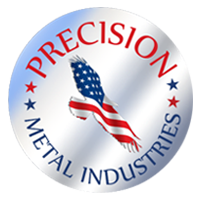Aluminum Sheet Metal Fabrication
Sheet metal manufacturing is one of the most common types of industrial production in the United States, and it’s no surprise — nearly every industry requires some form of sheet metal work, from enormous shipping containers and storage solutions to intricate electronic components.
What is sheet metal fabrication?
Sheet metal fabrication is made up of almost as many unique types of processes as the industries it serves. Their common goal, which is to convert a sheet of metallic material into a functioning part for use in a specific application, can be accomplished with a number of methods.
Bending, cutting, joining, press and roll forming, mechanical working, and annealing are all ways to transform a flat sheet of metal into a three-dimensional piece, either finished in its own right or as a component that will go on to be part of a larger, more complex part or system.
Specialty manufacturers offer many unique processes, depending upon the particular demands of an application.
Aluminum Sheet Metal Fabrication
Aluminum is an extremely popular choice for sheet metal suppliers due to its cost effectiveness, flexible nature, and range of options and grades. For example, high strength aluminum can be specialized for the aerospace industry, while corrosion resistant aluminum alloys are ideal for marine applications. It is highly weldable, machinable, and weather resistant.
Common grades of aluminum include:
- Grade 1100-H14 — This aluminum grade offers the best ductility for welding and deep draws, but the lowest strength. It’s commercially pure, with high chemical and weather resistance, making it popular for chemical processing applications.
- Grade 3003-H14 — Stronger than the 1100 grade, this type of aluminum is still formable, low cost, weldable, and corrosion resistant. It is popular for storage solutions such as cabinets or tanks, and lends itself well to stamping and drawing.
- Grade 5052-H32 — A much stronger aluminum sheet, 5052 still offers weldability, corrosion resistance and good formability, though it’s best for applications such as tanks or chassis.
- Grade 6061-T6 — Less formable and weldable than the other grades, 6061 is a heat-treated structrual aluminium alloy that is ideal for aircraft applications. It is the strongest of this list, and can also be found in yachts, automotive parts, bicycles, and firearms.
Due to its flexibility and many variations, aluminum sheet metal is an excellent material choice for both structural and mechanical applications. Even a specialized alloy such as 6061 can be further manipulated through tempering to produce particular strength or weldability.
Industries and Products
Aluminum components are popular as housings, enclosures, assemblies, cabinets, brackets and supports, framing, panels, and chassis. They can be found in nearly every industry, with uses from chemical processing to commercial fan blades, including:
- Defense/Military
- Medical
- Aerospace/Avionics
- Energy
- Electronic enclosures
- Custom projects
For more information on sheet metal fabrication or the benefits of working with aluminum, contact the team at PMI today.




